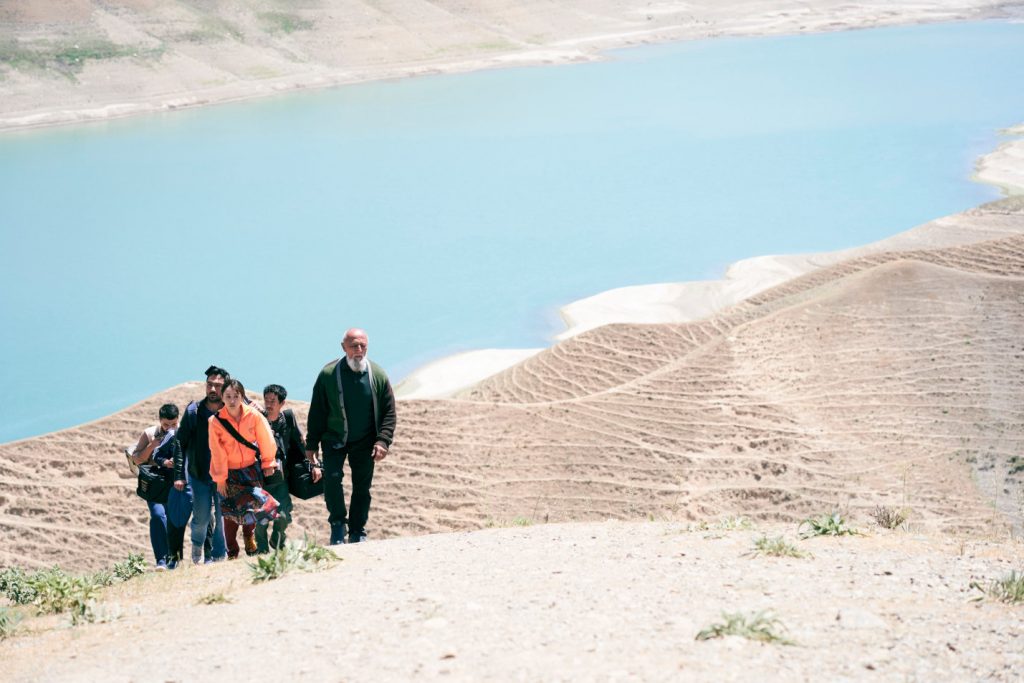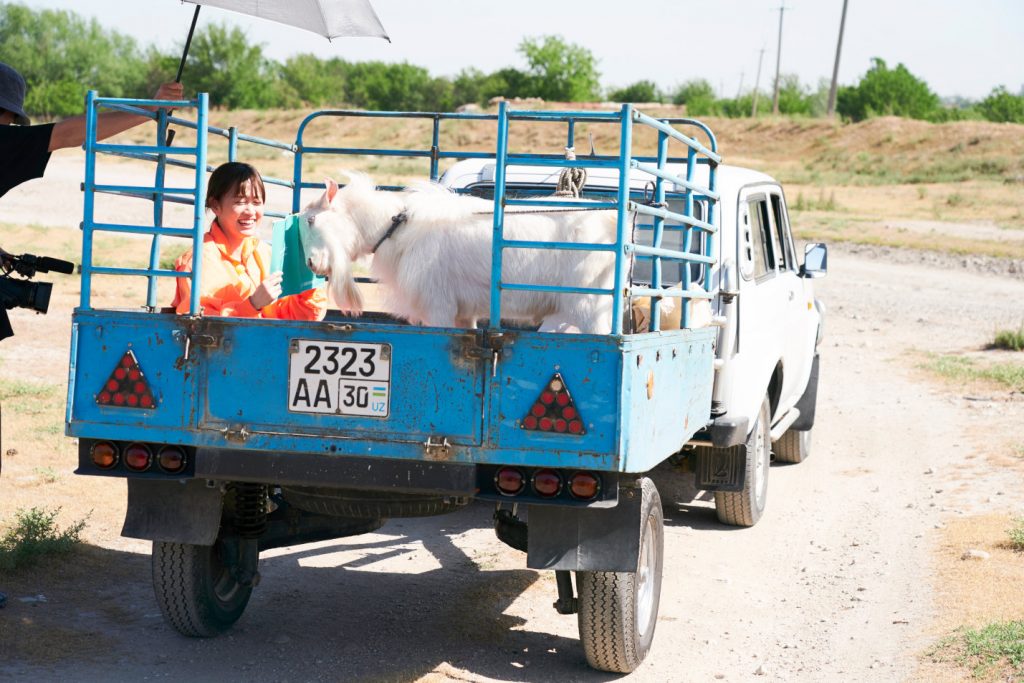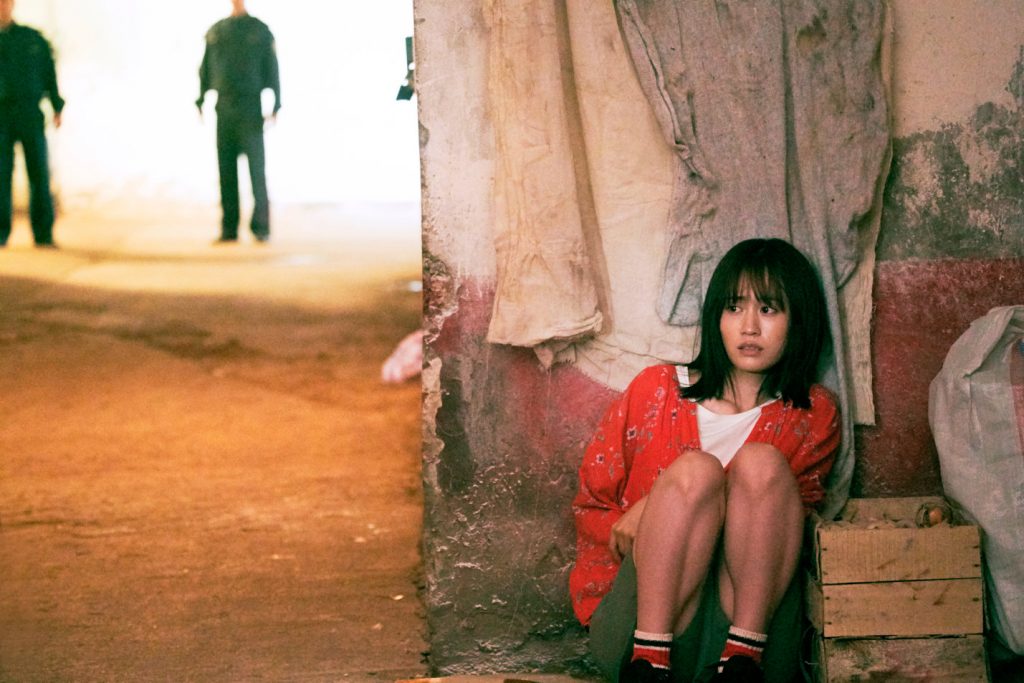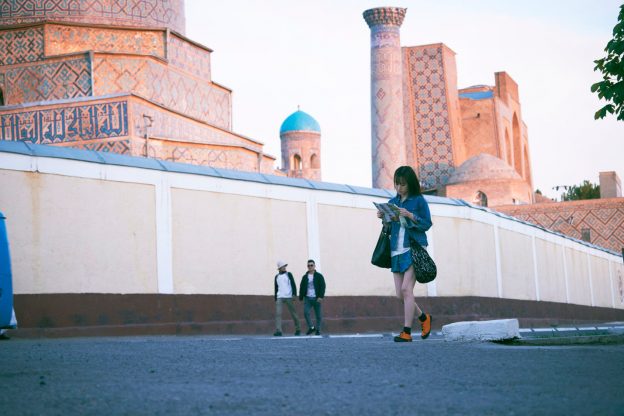Yoko (played by the former leading member of the idol girl group AKB48, Atsuko Maeda) is the reporter for a television travel program who visits Uzbekistan with her television crew to make an episode for the program. She dreams of becoming a singer. The film contrasts Yoko’s upbeat on-camera persona with her internal conflicts when she is on her own.
The film consists of a series of episodes in which Yoko wades into a lake to describe looking for a possibly mythical Uzbeki fish; proclaims the delicious crunchiness of under-cooked rice in a bowl of plov, a local dish; repeatedly takes nausea-inducing turns on a fun-park pendulum ride until her camera crew can get enough B‑camera footage of her face; and tries to liberate a goat in captivity named Okoo only to learn that if she does, it will be eaten by wild dogs.
She and the crew visit Samarkand and Tashkent; in the latter, she sings the classic Édith Piaf anthem, Hymne à l’amour (with Japanese lyrics], in a fantasy sequence set at the Navoi Theatre which (as noted below) had been built after the war by Japanese POWs. During a visit to the bazaar, she wanders off with a hand-held camera and starts videotaping in a restricted area. She runs away from the police, who eventually apprehend her but treat her kindly, especially when she learns that her firefighter boyfriend may have been involved in a massive oil refinery fire in Tokyo Bay, where he was stationed. (The boyfriend is never actually seen or heard; all the audience learns about him comes from texts he exchanges with Yoko.)
In a finale set in the mountains, her crew once again in pursuit of a likely mythical beast, she again sings Hymne à l’amour as she imagines that she has caught sight of Okoo running free in the distance.





Credits:Tabi no Owari Sekai no Hajimari (旅のおわり世界のはじまり)
UZ 2019, 120 Min. japanisch, usbekische OmU
Regie: Kiyoshi Kurosawa
Kamera: Akiko Ashizawa
Schnitt: Koichi Takahashi
mit: Atsuko Maeda, Shota Sometani, Tokio Emoto, Adiz Rajabov, Ryo Kase
Trailer:nach oben



 Deutsch
Deutsch